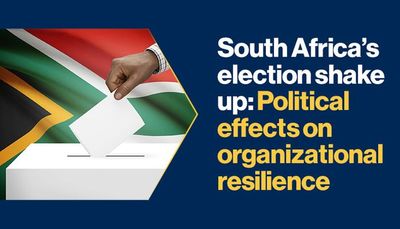Historic Coalition Government Formed in South Africa Amid Economic Concerns
JOHANNESBURG, South Africa – June 14, 2023 – In an unprecedented political development, South Africa has ushered in a new era of governance with the formation of a power-sharing coalition government. This follows two weeks of intense negotiations subsequent to a landmark election result that saw the African National Congress (ANC) lose its majority for the first time in three decades.
The new Government of National Unity amalgamates the ANC, the Democratic Alliance (DA), the Inkatha Freedom Party (IFP), and the Patriotic Alliance. Despite the seismic shift, incumbent ANC leader Cyril Ramaphosa retains his position as President, fortified by support from the Democratic Alliance, which stands as the second largest entity in the coalition.
The ANC’s historic defeat marks its initial majority loss since it first ascended to power in the nation’s inaugural democratic elections in 1994. The transition has underscored significant trepidation among business continuity professionals within the region, who now grapple with the ramifications of the newly minted government structure. Historically, South Africa has faced electoral turbulence and its associated risks. However, a coalition government presents a unique spectrum of challenges, potentially exacerbating socio-economic and geopolitical vulnerabilities.
Primary among these concerns is the specter of economic downturn. The anticipated apprehension among investors could deliver a blow to market stability, delaying developmental projects and precipitating unforeseen financial burdens. The uncertainty surrounding infrastructure availability and supply chain reliability looms large. Additionally, industrial actions and strikes by trade unions, protesting government policies, could lead to restricted access to workplaces, staffing issues, and supply chain disruptions. Public discontent over perceived governmental inefficacy in addressing key issues like unemployment and service provision could ignite civil unrest, posing direct risks to personnel, infrastructure, essential services, and operational continuity.
In response, the region’s business continuity experts are implementing rigorous risk assessments to recognize and respond to emerging threats. Updating business continuity plans and resilience strategies are at the forefront of these efforts, ensuring their pertinence and effectiveness. Mitigation measures span the gamut from supply chain diversification to mitigate disruptions, to collaborative information-sharing with partners and industry stakeholders to hone best practices.
Amidst these local changes, this political shift in South Africa serves as a harbinger for a global trend in electoral volatility. With a record number of elections scheduled for 2024, the implications of electoral uncertainty are poised to resonate worldwide. Consequently, robust, adaptable continuity planning is paramount for practitioners both within South Africa and globally, anticipating and preparing for potential disruptions arising from international electoral processes.
The BCI Southern Africa Chapter continues to champion the cause of business continuity and resilience, striving to embed these principles across industries within the region. Their efforts underscore the importance of a resilient organizational culture in weathering political and economic vicissitudes.
For further insights and developments on this evolving narrative, follow The BCI Southern Africa Chapter.
Source: The BCI Southern Africa Chapter (www.thebci.org)
